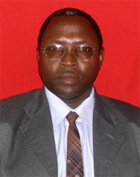Journal of Education and Human Development, 2(1), pp. 09-17.
Abstract
Internationalization has wrought transformations in how universities undertake their activities locally, nationally and globally. Its impacts have resulted into challenges in most aspects of university life. At the core of its contemporary manifestations are the challenges, risks and opportunities that it present to higher education in Africa. While the challenges are numerous, African universities could utilize some of the opportunities to enable them benefit more from internationalization and respond to some of the risks. This paper discusses how African institutions could respond to the challenges presented by internationalization. It provides some suggestions for navigating this terrain aligned to emergent social, economic and political needs. The task is complicated because of the place of transformations associated with internationalization and its far-reaching consequences
Full Text: PDF
Koskey, John Dr. Chang’ach. (2013). Turning Challenges into Opportunities: Prospects for African Universities. Journal of Education and Human Development, 2(1), pp. 09-17.
Assie-Lumumba, N.(2006). Higher Education in Africa: Crises Reforms and Transformation; Codesria Working Paper Series, Dakar.
Ellingboe,B. (1996). “Divisional Strategies on Internationalizing curriculum”, MA Thesis, University of Minnesota, USA. Hayboe, R. (1989). China’s Universities in the Open Door, Armonk, New York.
Knight, J. (1999). Issues and Trends in Internationalization: A Comparative Perspective. In: S. Bond, J. P. Lemasson & International Development Research Centre (Canada). (Eds.). A New World of Knowledge: Canadian Universities and Globalization. Ottawa: International Development Research Centre, xii, 294.
Knight, J. & International Association of Universities. (2006). Internationalization of Higher Education: New Directions, New Challenges. 2005 IAU Global Survey Report. Paris: International Association of Universities.
Marginson, S. (2006). Notes on Globalization and Higher Education with some reference to the case of Ausralia. Paper presented at York Conference on Internationalizing Canada’s Universities:Practices, Challenges and Opportunities: A Symposium.Retrieved from http://www.yorku.ca/yorint/global/conference/canada/papers/Simon-Marginson.pdf.
Moja, T. (2004). Policy Response to Global Transformation by African Higher Education Systems. In: T. Zelesa, A. O. Olukoshi & Codesria. (Eds.). African Universities in the 21st Century ( Vol.1). Dakar, Senegal; Oxford, UK: Codesria.
Saat, A. (2007).Internationalization of Higher Education: Preparation, Policy, Implementation and Recognition. Retrieved June 22, 2010, from http;//myais.fsktm.um.edu.my/3064/1/IN TERNATIONALIZATION OF HIGHER EDUCATION.pdf.
Sariolghalam, M. (1993). International Consensus on Development. Economic and Political Information, 71-72(7), 91-97
Some, D. K. & Khaemba B. M. (2004), (Eds.). Internationalization of Higher Education: The African Experience and Perspectives, Eldoret, Moi University Press.
Tapsir, R. et al. (2007). International Education: Diversity, Dilemmas, Differences andDirection, Proceedings INCUE 2005, UPENA, UiTM Shah Alam.
Trilokeka, R. D. (2007). Federalism, Foreign policy and the Internationalization of Higher Education: A case Study of the International Academic Relations Division, Department of Foreign Affairs and International Trade, Canada. University of Toronto, Toronto.
Wit, H. D. (2002). Internationalization of Higher Education in the United States of America and Europe: A Historical, Comparative and Conceptual Analysis. Westport, Conn: Greenwood Press.
Zelesa, P. T. & Olukoshi, A. (2004), (Eds.). African Universities in the 21st Century Codesria, Dakar.
Zolfaghari, A. (2003). The Role of Education in Social Development, Open University, Shahreza.

John Koskey Chang’ach is a senior lecturer Department of Educational Foundations, School of Education, Moi University. His career spans both history and history of education. At Moi University he earned an M.A. in history in 2004 and received a Ph.D. in history in 2010.
He has published many articles in both history and history of education, among which are several devoted to exploring and articulating issues that affect society. In the School of Education he taught the following courses: Introduction to Educational Foundations, Character Education and Integrity, History of Education, Introduction to Educational Foundations, Research Methods in History of Education, Pre-Colonial Education in Africa, Education in Africa, The School and the Nation.
In the School of Arts and Social Sciences he has taught the following courses: The Kenyan Historiography, Introduction to World Civilization I, Introduction to World Civilization II, Sources of African History, History of Kenya to 1895, Themes in East African History, History of Middle East Since 1800, Themes in West African History, Introduction to African History Since 1884, Development of Historical Thought upto 1900, Development of Historical Thought Since 1900, History of Science, Issues in African Historiography, and Kenya’s Economy Since 1963.
Currently he is the Head of Department Educational Foundations.
Browse Journals
Journal Policies
Information
Useful Links
- Call for Papers
- Submit Your Paper
- Publish in Your Native Language
- Subscribe the Journal
- Frequently Asked Questions
- Contact the Executive Editor
- Recommend this Journal to Librarian
- View the Current Issue
- View the Previous Issues
- Recommend this Journal to Friends
- Recommend a Special Issue
- Comment on the Journal
- Publish the Conference Proceedings
Latest Activities
Resources
Visiting Status
| 1153 | |
| |
1169 |
| |
53432 |
| |
77569 |
| 3421703 | |
| 17 |
 The Brooklyn Research and Publishing Institute
The Brooklyn Research and Publishing Institute